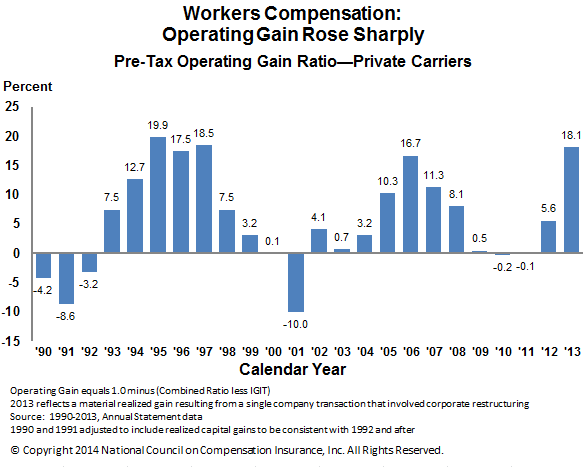This year Father’s Day and the Summer Solstice fall on the same day – making for a very long day here in upstate NY with lots of daylight so I can loll around while being waited on (well, maybe not that last part).
While I was busy inundating your inbox with posts on the profitability – or lack thereof – of workers’ comp, a bunch of other stuff happened.
Another shot in the subrogation/third party liability battle was fired by Kentucky’s Medicaid program. According to WorkCompCentral’s Ben Miller, hundreds of letters have been sent to work comp insurers in an attempt to ascertain if specific individuals’ medical care is due to a work comp injury. The rationale is clear; Medicaid doesn’t want to pay for medical care it doesn’t have to. As a taxpayer I completely support this. Where it could get really sticky involves settled claims; if the work comp insurer/employer has settled the claim, my assumption (always dangerous) is the settlement requires the claimant to use those funds to pay for injury-related medical care.
What if the claimant doesn’t have any of the settlement dollars left? If the claimant doesn’t pay, is the work comp insurer/employer liable? Who’s going to be stuck with the bill; the claimant? the provider? Medicaid? another insurer?
Oh boy.
A terrific article in Harvard Business Review on what private equity investors do when they buy companies notes three distinct types of “engineering”; financial, governance, and operational. Lots of insight, data, and examples make this a must read for anyone considering a transaction, or trying to understand how PE firms work.
Activity in the oil patch is slowing down, but claims counts are not going up. Reuters quotes a Travelers insurance exec who’s a bit surprised about this; I have a call into Travelers to see if we can get more insight into the issue, and will share whatever I learn.
The new, updated Washington Guidelines for Prescribing Opioids for Pain are out; a product of the Agency Medical Directors (AMD), the new guidelines address opioid usage for many different conditions, cover special population issues, and update and expand a variety of treatment- and risk-assessment-related topics. With five years’ experience under its belt, the AMD have learned a lot, lessons that other jurisdictions would be well-served to consider.
Finally, for many families in Charleston – and elsewhere – this Father’s Day is anything but joyful. If I may be so bold, I’d suggest we strive to be part of the solution.

